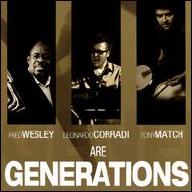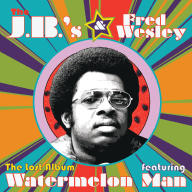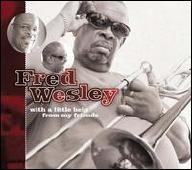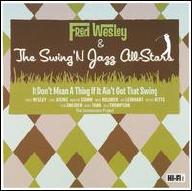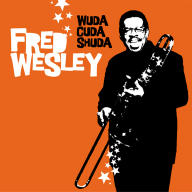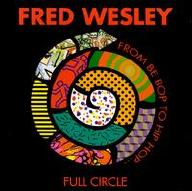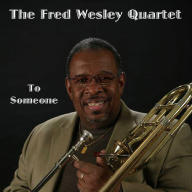Brown's infamously dictatorial approach wore greatly on Wesley, and the two men clashed often. After appearing on landmark singles including "Say It Loud (I'm Black and I'm Proud)," "Licking Stick," and "Mother Popcorn," the trombonist even quit the J.B.'s in late 1969, briefly gigging with Sam the Goodtimers before returning to Brown's camp in early 1971 and assuming the role of musical director and arranger. Wesley's contributions to classic funk outings including Black Caesar, Slaughter's Big Rip-Off, and The Payback cannot be overstated: alongside bandmates including Maceo Parker and Bootsy Collins, he spearheaded Brown's groundbreaking transformation from soul to funk, establishing the template for the R&B of a new decade. "I completed [Brown's] creations, I followed his blueprints," Wesley later said. "He would give me horn things to write, but sometimes maybe it would be incoherent musically and I would have to straighten it out, so to speak. When it came out of my brain, it would be a lot of James Brown's ideas and my organization." Wesley even wrote a handful of Brown hits including "Doin' It to Death" and "Papa Don't Take No Mess," and headlined several J.B.'s records including the classic Damn Right I Am Somebody and Breakin' Bread. But creative and financial differences again forced him to part ways with Brown in 1975, this time for good.
Wesley signed on with George Clinton's Parliament-Funkadelic in time for their seminal Mothership Connection LP. And unlike Brown, Clinton encouraged his collaborators to pursue their own projects, even co-writing most of the songs featured on the trombonist's 1977 official solo debut, A Blow for Me, a Toot for You, credited to Fred Wesley the Horny Horns. After a second solo disc, 1979's Say Blow by Blow Backwards, Wesley exited the P-Funk sphere to return to his first love: jazz. He joined the Count Basie Orchestra, and also moonlighted as a producer, helming the self-titled debut LP by R&B group Kameleon. After settling in Hollywood in 1981, Wesley assumed the role of hired gun, playing on studio sessions headlined by Earth, Wind Fire, Barry White, and the Gap Band, and also arranged records by Curtis Mayfield and Terry Callier. He re-ignited his solo career with 1990's jazz date New Friends, and continued recording straight-ahead jazz LPs throughout the decade to follow. As his unmistakable syncopated style became a crucial component of hip-hop via endless sampling of his vintage James Brown sides, Wesley also toured with fellow Brown alums Maceo Parker and Pee Wee Ellis as the JB Horns before forming his own Fred Wesley Group in 1996. In 2002 he published his memoirs, Hit Me, Fred: Recollections of a Sideman. Wesley followed it with a new album, With a Little Help from My Friends, in 2010 from BHM Records. He concurrently served as an adjunct professor of jazz studies at the University of North Carolina at Greensboro. Wesley continued to tour through the 2010s, and in 2015 he released a joint album with Leonardo Corradi and Tony Match called Generations. ~ Jason Ankeny, Rovi


